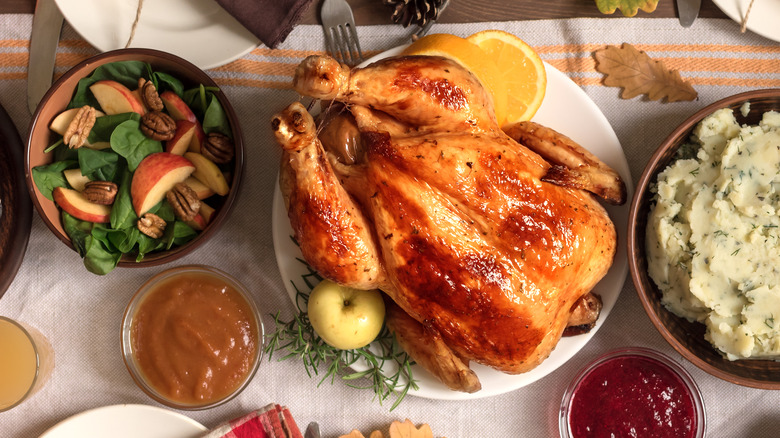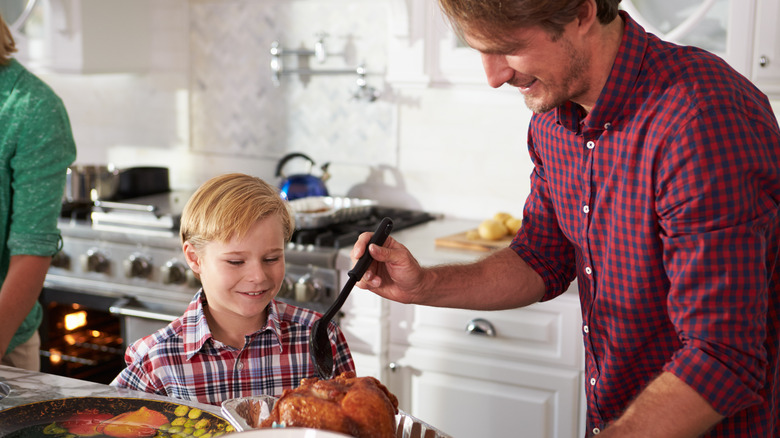Here's Why You Should Stop Basting Your Turkey
Ah, the holidays. Who doesn't love this time of family get-togethers, festive outfits, and, of course, delicious food? Whether you're celebrating Christmas, Thanksgiving, or the New Year, one classic main dish choice is — what else? — a browned, perfectly roasted turkey.
Roasting a turkey seems easy, right? You throw a rack in a roasting pan, season your bird, calculate the cook time, and slide the turkey into a hot oven. But when you think about it, there are so many variables to roasting a bird. For example: Did you make sure to pat the bird dry? Did you season it adequately, both inside and out? Is your oven set to the right temperature? Once it was cooked, did you let the turkey rest before carving it? Any one of these missteps can lead to a turkey that is, variously, soggy-skinned, under-flavored, under- or over-cooked, or dry.
And here's another common turkey roasting mistake many of us have been guilty of: basting the bird. Yes, we know, there's nothing more iconic than reaching into a hot oven and basting the turkey with flavorful juices, but most cooking experts now recommend ditching this step.
Basting the turkey dries it out
Let's think, for a second, about the idea behind basting a turkey. Supposedly, it adds moisture to the bird, which, as we all know, can be prone to drying out during all those hours in the oven. Ladling hot, rich stock over a cooking piece of meat should imbue it with moisture, right?
As it turns out, this conventional turkey-roasting advice is now widely considered to be wrong. According to Alton Brown in an interview with NPR, basting a turkey actually does the opposite, drying the meat out. Here's why: every time you open the oven door to baste the bird, you let out heat; in fact, the oven temperature drops about 50 degrees Fahrenheit with each opening, according to MyRecipes. That ultimately means a longer cooking time for the turkey, which might not only leave your hungry guests waiting, but also means more exposure to heat and more opportunity to dry out.
Another drawback to basting? It softens up the turkey skin, when in fact what most eaters love is crispy skin. The drier the skin, the crispier the skin, according to Epicurious. So step away from the baster, folks: The best way to ensure a juicy bird is simply to not overcook it.

